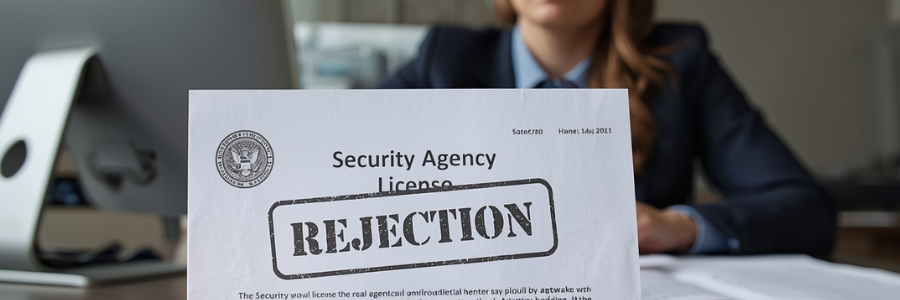Emerging Security Trends Post-PSARA Regulations
Since its inception in March 2016, the PSARA (Private Security Agencies Regulation) Act has transformed the security agency industry’s landscape in India. The legislation has implemented strict measures on the training of security personnel, and conduct of the business, and has put robust verification compliances in place.
A PSARA license is mandatory to operate a private security agency in India. This license ensures the commitment to best practices and ethical conduct within the organization. The act encourages such agencies to abide by the law, provide quality security services to their clients, and elevate their professionalism.
Keep reading to get detailed insights into the compliances and strategies that can be implemented post-PSARA Application Process.
Post-PSARA Registration Compliance Requirements
Upon successful PSARA Application Process and obtainment of a PSARA license, a private security agency is mandated to comply with the following regulations:
- Commence Operations Within Six Months: The licensee, i.e., a private security agency that successfully obtains a PSARA license has to commence operations of its business within six months of obtaining the license. During this period, set up the office premises and deploy supervisors and security guards to serve the clients.
- Security Training of Personnel: After submitting the PSARA application, the private security agency is required to train its security personnel as per the National Skill Qualification Framework. Ensure that either security guards are provided uniform or reimbursed to procure it. The personnel must undergo training on crowd control, fire-fighting, first-aid, physical fitness, crisis response, disaster management, handling of weapons and firearms, etc. For this, security agencies can enter into MOU with training institutes which must be recognised and equipped with proper training facilities.
- Appoint Supervisors: As per the provisions of the PSARA Act 2015, private security agencies must appoint supervisors to manage and oversee the operations of security personnel. A single supervisor cannot supervise the work of more than 15 security guards. In case the guards are on duty in different premises, the agency has to deploy more supervisors so that they are readily available to assist, supervise, and advise security guards. PSARA Application Process encompasses rules which mandates agencies to appoint such personnel and maintain a register specifying their name, address, and other relevant details.
- Preference to Ex-Servicemen: By complying with the regulations of the PSARA Act 2005, private security agencies have to give preference to ex-servicemen when hiring a security guard. Preference must be given to those who have served in the Army, Air Force, Navy, Police, Home Guard, or any other armed forces. Further, supervisors must possess relevant experience, necessary skills, and knowledge to effectively fulfill their responsibilities.
- Antecedent Verification and Background Check: The private security agency has to conduct a thorough background check of the antecedents and character of the security guard or supervisor before their hiring. The controlling authority will use criminal and crime electronic databases to verify the same. The agency must look into whether the person has any criminal record or any serious convictions. In addition, check their employment history, person’s character through reference checks, identity verification, etc.
- Maintenance of Registers: Security agencies are required to maintain a register that must contain essential information such as the name and address of the person who is managing the agency, security guards, supervisors, managerial personnel, and other members associated with the agency. A separate register must be maintained to record all the details of the name and address of the agency’s clients.
- Issue Identity Cards: Every private security agency has to issue photo identity cards to its personnel. The identity card must contain the full-face image of the person in colour, full name, agency’s name, and the employee number. It must indicate the position of individual and must be returned once the security guard is no longer employed in the agency.
- Uniform: Private security agencies are mandated to issue uniforms to their security guards. It is obligatory for these personnel to put on a chest or shoulder badge indicating their position in the agency, arm badge, shoes with laces and eyelet, a headgear, and whistle attached to whistle cord. In addition, uniform worn by the security personnel must not hinder their efficient performance, which means it should neither be too tight and too loose.
How PSARA Promotes Ethics in the Security Industry? The PSARA license establishes a legal framework to conduct background checks, verifications, training programs, and proper conduct of the personnel. It has laid down crucial regulations that security agencies must follow to enforce ethical conduct within the organization.
Strategies to Implement Post-PSARA Registration
After the PSARA Application Process and license procurement, the security agency must establish a robust mechanism that enables it to effectively deliver its services and enhance customer trust and satisfaction.
The strict compliance management alters the security agency’s operations in alignment with the PSARA act. It helps in building strong client relations and offering top-notch security services. In addition, the agency can take initiatives beyond the prescribed regulations to scale up its business and establish a greater foothold in the security service industry. The following tools and strategies can be adopted to enhance business efficiency and services in the security industry:
1. Integration of Technology: Private security agencies can leverage the technology to level up their surveillance and monitoring with the use of high-definition CCTV cameras, drone surveillance, and video analytics.
- IOT: Internet of Things (IOT) is the collective network of technology and devices. By implementing IOT in day-to-day functioning, security agencies can perform real-time monitoring, detect suspicious and illegal activities with sensors, improve communication between leader and security guards, and increase their overall operational efficiency.
- Smart Security Systems: A security agency can install smart security systems such as high-definition CCTV cameras, motion detectors, smart locks, wireless sensors, intruder alarms, and devices to remotely monitor the entire security system. CCTV with night vision will help capture activity on the premises, motion sensors will alert the personnel when unauthorized movement is detected, and electronic locks will provide greater control over who can enter the premises.
- Automation and AI: Artificial Intelligence powered video analytics and facial recognition system will capture faces of individuals and compare it with detected suspects or other people. AI will assist in proactive threat detection and instantly notify the personnel in case of security breaches. Adopting these technologies will also help in automating repetitive tasks such as timekeeping, scheduling, live reporting, and sending notifications.
2. Focus on Cybersecurity: Private security agency actively collects data of its clients to ensure their safety. It includes information such as personal details, current location, call logs, property layout, and other essential information, which is required to monitor their activity and detect security risks. However, these data and network of security agencies remain highly exposed to cyber security attacks.
- Cybersecurity Training: To curb cybersecurity breaches, it is necessary to equip security guards with knowledge to identify and report instances of potential cyber threats. Guards should be trained to recognize any suspicious activity on the digital system for example, unauthorized login attempts, hacking of camera systems, and phishing emails.
- Physical Security with IT: Private security agencies can use information technology systems and devices to enhance the physical security of the premises or location. Install biometric scanners, smart door locks, and smart fences to generate alerts immediately and allow for more proactive security services. Understand the Costs of Maintaining a PSARA License and other essential costs to effectively operate a security agency and integrate technological devices for better-safeguarding mechanisms.
3. Skill Development and Professionalism: Once a security agency is established post PSARA Application Process and license obtainment, it is mandated to connect with training institutes and maintain a high-level of professionalism by complying with other compliances. Emphasis should be given on skill development to enable security guards to quickly detect any suspicious activity, handle incidents calmly, and minimize damages. They must be trained in customer service etiquette and communication skills to maintain a standard of conduct and build trust with visitors and clients.
- Background Checks: Security agencies must undertake background checks on their security personnel to avoid any security risks and damage to the company’s reputation. As hiring a security guard with a criminal case or criminal history can lead to legal issues, it is necessary to stay vigilant and informed regarding the same.
- Training and Certification: Security guards and supervisors must be equipped with required skills, knowledge, and physical attributes to effectively perform their duties. They must be well-trained on how to deal with a wide range of security scenarios and must be certified by a recognised training institute to deliver professional and reliable services. Adequate training and certificate will build Build Trust for Security Agency with PSARA License. A security agency, which is widely known for its trustworthiness and credibility demonstrates adherence to industry standards and provides assurance to its clientele regarding its legitimate and quality services.
Final Thoughts
PSARA Application Process in India is available for all the states and union territories except West Bengal and Ladakh. The PSARA ACT 2005 lays down the guidelines, including mandatory requirement of obtaining a PSARA license to operate a security agency in the nation. The license facilitates standardization of security services and improves the quality of services offered by the agencies.
PSARA license is an indicator that the agency meets the prescribed criteria, which is necessary to operate. These criteria include incorporation of the company, filing of all the relevant documents, proper training of security guards, and maintenance of ethical standards in every business aspect. Check whether you qualify to establish a private security agency in India with expert professionals of Legal Raasta Pvt Ltd. Submit the accurate and complete application to avoid any rejection and establish the agency in a seamless and hassle-free manner.










